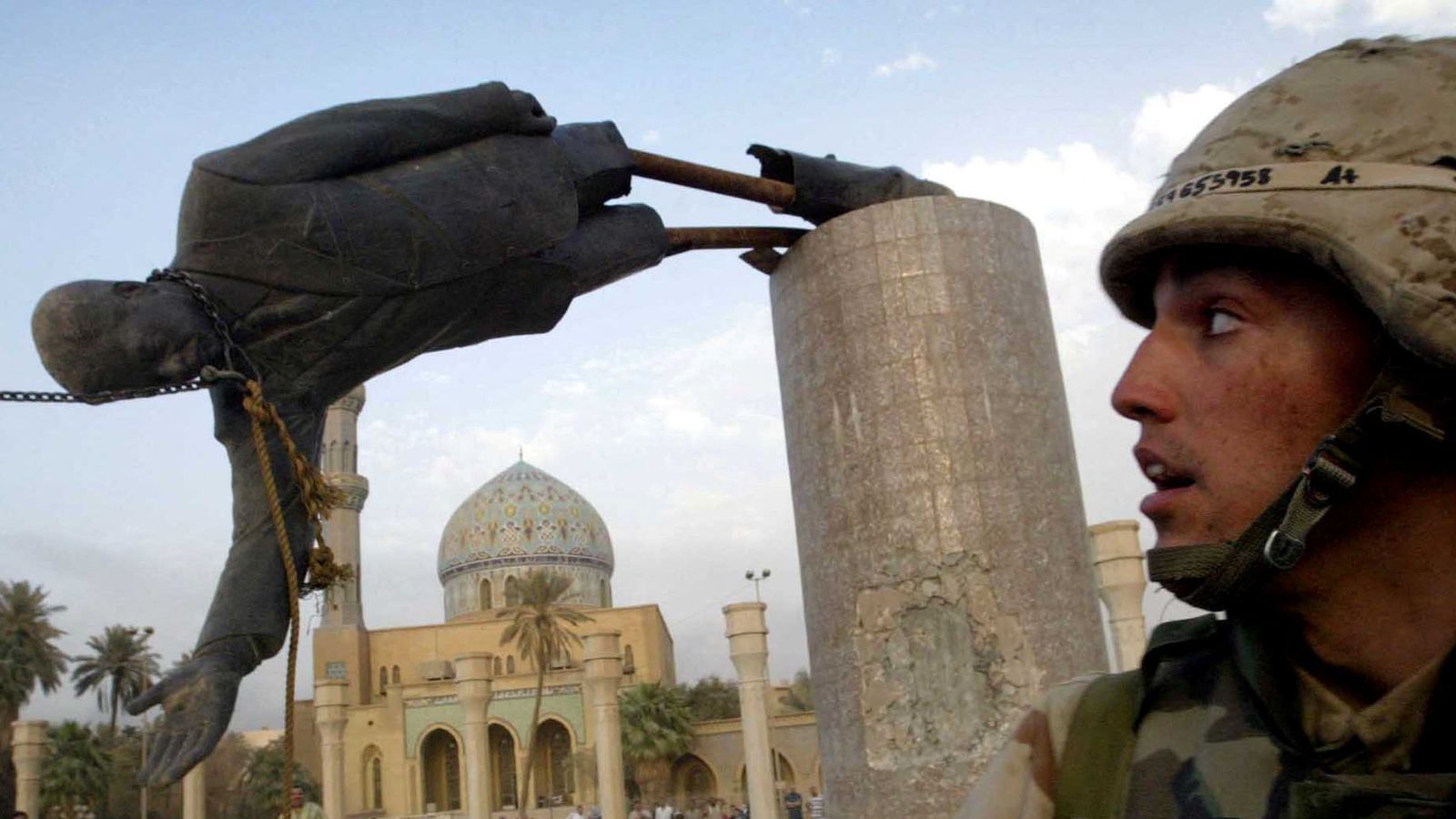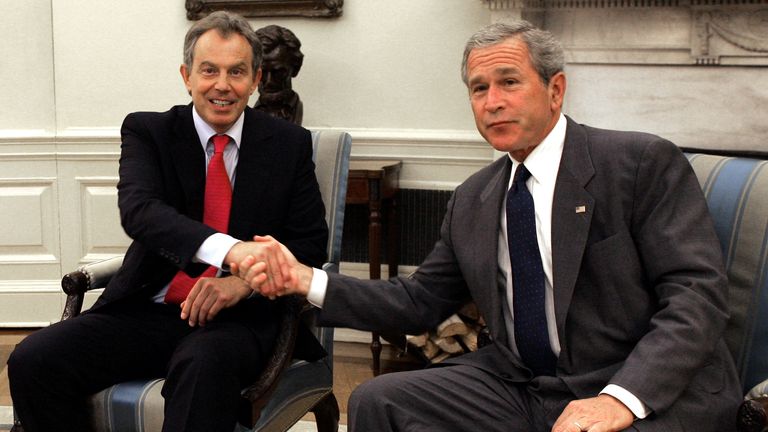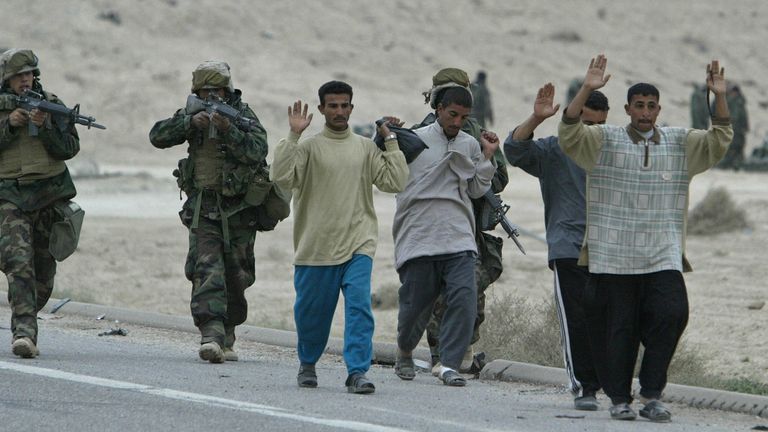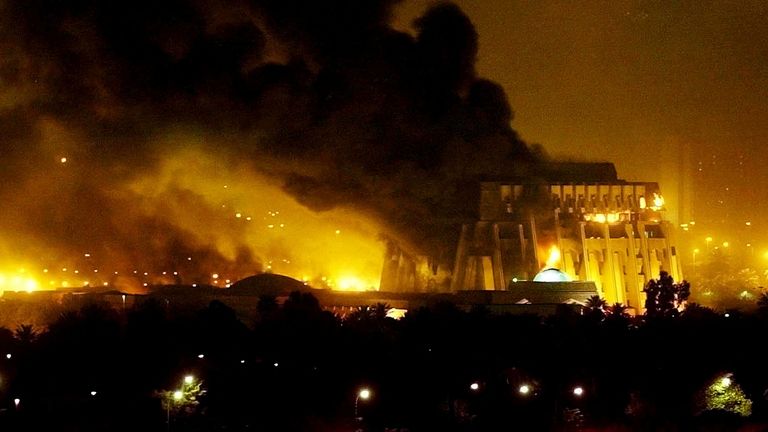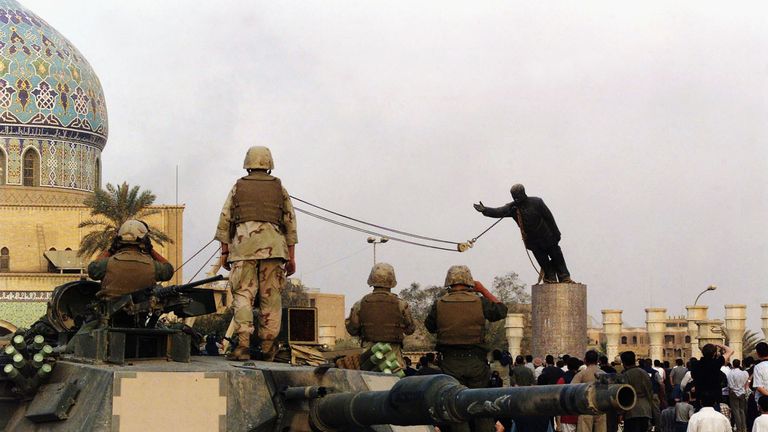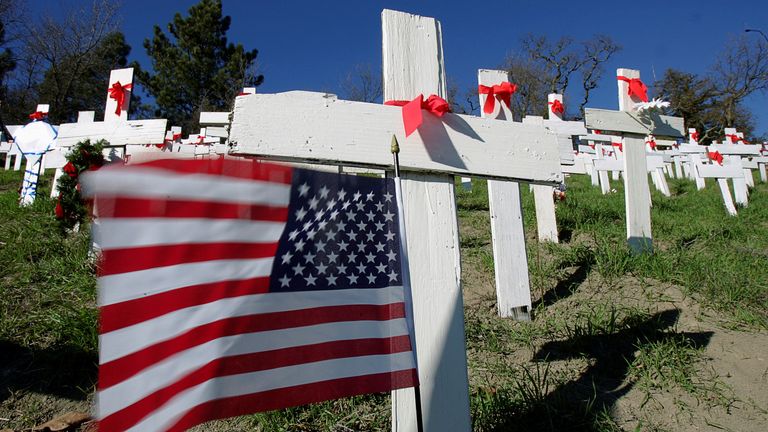At the turn of the century, America had emerged victorious from the Cold War and stood unchallenged.
It had greater power and influence than any other nation in history. It could have wielded that power judiciously to protect the American-led post-war world order and inspire other countries to follow its values of freedom and democracy.
Instead, it squandered that supremacy embarking on a calamitous misadventure in Iraq that was ill-advised and disastrously executed. It would be the beginning of the end of the pax Americana.
A direct line can be drawn between that debacle, which began on 20 March 2003 and others that followed, right up to the perilous state of the world today.
The war in Ukraine, the unchecked ascendancy of China, the growing power of Iran, and even the rise of Trump and the politics of populism all have roots that can be traced back to America’s folly in Iraq.
The falsehoods and delusions that led to war
America went to war led by ideologues who believed they could refashion the Middle East in their own likeness and bring democracy and a more pro-Western outlook to the region.
The failure of that neoconservative project has done lasting damage to Americans’ claims of exceptionalism, and their belief that their form of governance is an example to the rest of the world. And that has by extension done enduring harm to the American-led world order.
The failings of that project in Iraq are well documented. The false premise of non-existent weapons of mass destruction, the delusion that invaders would be welcomed as liberators, the absence of any plan for the day after. The damage to America’s standing in the world has been incalculable.
Equally, human rights violations, violations of democratic norms, targeted killings, and the atrocities of Abu Ghraib prison, from where photographs showing abuse of inmates by US soldiers emerged, tarnished America’s image as the standard-bearer of democracy and human rights.
This has weakened Washington’s influence in the world. When India and other countries in the global south sit on the fence in UN resolutions on Ukraine, their ambivalence can in part be traced back to America’s record in Iraq.
Read more on Sky News:
Unfazed by arrest warrant, Putin’s Ukraine trip is all for cameras
Police file terrorism charges against Imran Khan and supporters
A lasting impact on US foreign policy
The failure undermined America’s own self-confidence. The spectre of Iraq made Barack Obama reluctant to be drawn into the Syria conflict and punish its leader’s diabolical use of chemical weapons.
That reluctance was seen in Moscow as an American weakness, and arguably emboldened it to defy the West and seize Crimea with relative impunity a few years later. And that in turn encouraged Vladimir Putin to invade Ukraine in earnest last year.
The distraction of Iraq led to failure in Afghanistan, a protracted two decades of occupation and a disastrous withdrawal.
Iraq sucked up what policymakers in Washington call bandwidth year after year, while in the east a far greater challenge was rising. The West would take years to wake up to the threat posed by China.
Closer to Iraq, Iran was strengthened. Before the invasion, its regional influence was limited to a militia in southern Lebanon, Hezbollah. Today it has clout in capitals from Beirut to Damascus to Baghdad to Yemen.
The war in Iraq has done damage to America’s belief in itself. The conflict cost a trillion dollars and thousands of American lives. It has fuelled opposition to any more military adventures abroad.
And it has undermined Americans’ faith in both government and the political and media elites meant to hold it to account. That only in part helps explain the rise of populism that ultimately brought Trump to the White House.
Iraq still recovering from journey to hell and back
In Iraq, people are now no longer living under tyranny. There is reportedly some sense of hope and renewal, but only recently. And the country has literally been to hell and back to get there.
Hundreds of thousands have died in the war and the waves of sectarian violence that followed. The country has been broken, its institutions destroyed and its economy ravaged.
It is only just beginning to recover from all that trauma. But perhaps it can now look forward cautiously to a slightly better future. That is more than might have been said had Saddam Hussein remained in power or any of his impulsive, venal sons.
Ten years ago, George W Bush said the final verdict on his actions in Iraq would come long after his death.
That may be true, and it may take more time to judge whether the removal of one of the worst tyrants in history in any way justified the enormous cost and pain that then ensued.
Twenty years on, though, we can say the invasion and occupation have had a lasting legacy on the region and the world, and much of that has not been for the better.
